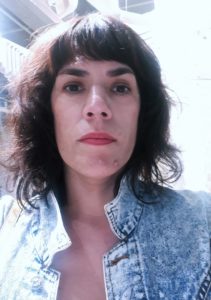A journey of learning and teaching

By Brian Wright-McLeod
TORONTO— It is only within living memory that Indigenous people have entered and excelled in the halls of higher education. As many Indigenous educators make exceptional strides at the post-secondary level, Kerry Potts exemplifies the trend of this achievement.
From her beginnings in Temagami First Nation and Ottawa and then on to Toronto, Potts has found a home in academia.
She received her Master of Arts and now teaches full-time at Humber College with strident verve and insight derived from her cultural roots.
“My mother was a teacher and that sparked my interest.”
It was the catalyst that ignited a journey of self-discovery that proved to be foundational for her career.
“I grew up in an urban environment in Ottawa, but always had a desire to learn what it means to be Indigenous,” she said. “I sought out my own identity, my own commitment to the community and to remain engaged.”
Her beginnings varied, but were consistently tied to the arts.
“I started doing catering for film productions when I moved to Toronto, and I hated it,” she said.
It was at the Native Canadian Centre of Toronto where she landed a position as Secretary of the Board at the Toronto Aboriginal Social Services, then moved on to the Native Women’s Resource Centre where she developed a youth program. While working on her Masters degree, she had a position at Bridges for Youth alongside homeless Indigenous youth delivering cultural awareness retreats in various high schools.
“It was an amazing time,” she said.
Following those fulfilling experiences, she began working at Native Women in the Arts for four years while completing her Masters at the University of Toronto’s Ontario Institute for Studies in Education (OISE).
Through a series of fortunate career opportunities, Potts found herself on an extraordinary path in arts and education.
“I was still working in the arts sector when I got a Teachers’ Assistant gig in the Indigenous department working under Jean Paul Restoule, and won the TA of the Year Award in 2006. I was really surprised because this was out of hundreds of TAs. That piqued my interest in going further,” she revealed.
“Susan Aglukark recruited me to assist her in the release of the album, Blood Red Earth,” she said.
She continues to work for Susan’s Arctic Rose Foundation as a fundraiser, supporting the creation of after-school art programs for high school students across the north.
“I later moved on to the imagiNative Film and Arts Festival for about five years. That experience was amazing to see the global talent that exists in media arts.”
The arts kept her involved with the community as she began her education career at Seneca and George Brown Colleges.
Recently gaining a full-time position at Humber College, her dreams have come to fruition.
“I was asked to develop the course Indigenous Perspectives on Indigenous Music, Film and Media,” she said.
The program has enjoyed strong enrollment over the past five years.
“I’ve been at Humber College for eight years,” she said. “But it’s the students and staff that keep me inspired.”
The main turning points she identifies as contributing factors in Indigenous studies have been the Truth and Reconciliation Commission and the Idle No More movement.
“I felt a shift in the colleges and universities to recruit Indigenous teachers who offer a practical point of view,” she said. “Now, there’s space for Indigenous people that never happened before.”
Her advice for newcomers to the field of education is simple.
“The most important thing to remember is the value of what you’re doing. Commit yourself with focus and passion in that work.”


